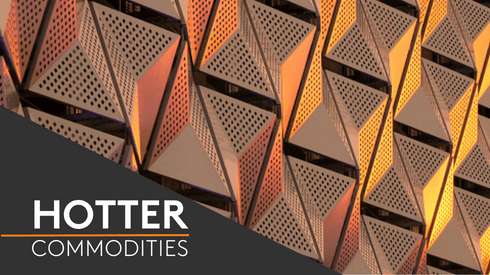The most draconian of multiple new duties which will take immediate effect once the bill is signed are 40% on certain kinds of aluminium foil.
“It [the bill, known as HR 7108] passed the House this afternoon and as soon as the paperwork is ready—usually in a day or two—we will send it to the White House for President Biden to sign,” Ashley Schapital, a spokesperson for the Senate Finance Committee told Fastmarkets late Thursday. The Senate unanimously passed the bill earlier that day.
Sources said it is “a foregone conclusion” that it will be approved by President Biden, who has threatened sanctions “unlike any before seen” on Russia in retaliation for its February 24 invasion of Ukraine.
The bill was introduced to the Senate on March 2—just days before aluminium prices on the London Metal Exchange reached their highest ever level on supply concerns out of Russia.
Broadly, the bill will mean duty changes on:
- primary aluminium, from as little as zero before to as much as 25% now; HTS codes 76012090 and 76011060 are facing duties of 10.5% and 11% respectively
- aluminium sheet and plate, from as little as 3% to as much as 30% now
- aluminium foil, from as little as zero to 40%
“It all depends on the chemical composition of the primary aluminium, which will be subject to a duty of 10% at the low end and 25% at the high end,” said one trade expert, who preferred not to be named.
“It looks like the product subject to 25% is a primary aluminium that contains a significant amount of silicon,” the source said.
Multiple types of aluminium under these categories each have different previous and future duty levels. Aluminium is just one of many Russian products addressed in the bill.
Russian aluminium imports to the US totaled 534.57 million lbs in 2021, down from a high of 1.7 billion lbs in 2017, according to figures provided by the Aluminium Association.
US aluminium premiums remain at peak levels following a widespread expectation that the US would again sanction imports of Russian aluminium—as it did in 2018. Russia is the world’s second-largest exporter of aluminium.
The benchmark US aluminium premium remains at its highest-ever level. Fastmarkets assessed aluminium P1020A premium, ddp Midwest US at 39-40 cents per lb on Tuesday, April 5, with no spot deals reported and buyers seemingly cautious.
“It [the premium] won’t double [from the additional tariffs], but it certainly doesn’t help reduce costs or increase availability,” one trader said.
Many US buyers told Fastmarkets they have already backed away from Russian aluminium, which could lessen further upward momentum in the aluminium price and premiums arising from Thursday’s bill.
“I wouldn’t touch Russian metal; it could be sanctioned while it’s on the water,” one buyer source said recently.
A key trade organization issued a statement in support of the bill late Thursday. “The American Primary Aluminum Association applauds Congress and the efforts by the Biden Administration to revoke the United States’ [PNTR] with Russia,” it said. “By stripping Russia of its [PNTR] status, the United States deprives Russia of significant revenue for its steel and aluminum exports used to fund its war against the peoples of Ukraine,” the association added.
Senate Finance Committee Chair Ron Wyden, D-Ore., who introduced the No Most Favored Nation Trading with Russia Act last month said then that it was a response, “to Vladimir Putin’s continued, unprovoked invasion of Ukraine.”
“I urge my colleagues to set partisanship aside and quickly revoke Russia’s most-favored-nation trade status to send a clear message to Putin that the invasion of Ukraine will have devastating consequences for his regime,” Wyden added.
Thorsten Schier, New York, contributed to this report.





